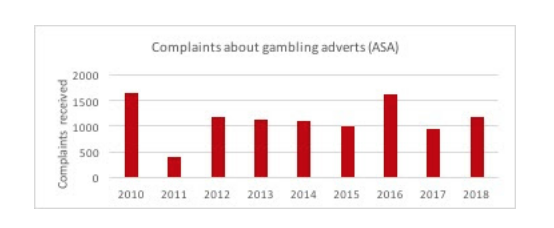Industry strategic consultancy Regulus Partners reviews a week of UK parliamentary debate on the future of betting/gambling’s regulatory structure, which appears to be turning into a game of political manoeuvring and posturing…
_______________
UK: Regulation – Labour speaks softly but carries a big stick
UK gambling operators awoke yesterday to the sight of two senior parliamentarians striding towards them, wielding big sticks. The Labour Party Deputy Leader, Tom Watson and Conservative peer, Lord Chadlington both issued calls for regulatory reform – aimed principally at the remote sector. From Watson, there was talk of a “radical crackdown” and “industry excesses”; of concern about VIP schemes and the need to make affordability checks no longer a matter of operator discretion; and of limits on stakes, spend and speed of play analogous to land-based gambling.
Yet this was no diatribe against the industry. Both Watson and Chadlington (along with Professor Sian Griffiths of Public Health England and GambleAware) spoke in measured and conciliatory tones; with warmth and occasional humour.
Given the gambling industry’s political-regulatory vulnerability, it would have been all too easy for Tom Watson to have played to the mob; to have announced a range of arbitrary measures to curb the commercial freedoms of online operators. Instead, he chose to “go high” by unveiling strategic plans to restructure the architecture of gambling legislation in his country.
There will undoubtedly be suspicions within the industry regarding where matters might go next, but it is difficult to argue with the Labour Party’s view that online games should be categorised within legislation. There are seven different categories for land-based gaming machines in Great Britain (including the dormant Category A), collectively generating £2.8bn a year in revenue – one category has just a little over 200 units (generating £2m a year) across the entire country. By contrast, there is no discrete classification in law for the myriad (and unlimited) online slots games, which generate a little over £2bn a year – and rising. This is the “coherence in categories” that Labour perceives to be missing.
In setting out a vision for the future of gambling regulation, Watson emphasised the need for practicality and inclusivity: “It is only through collaborative effort, bringing together the community with parliamentarians and policy-makers, academic experts and the industry, that we will be able to provide the strong foundations needed to move forward with these difficult questions.”
There is all too rare wisdom in these words. The logic of a “guiding principle of limits applied to spend, to stakes and to speed, so that all options are on the table” is difficult to resist; and so far, both operators and trade associations have responded in a constructive fashion.
For his part, Lord Chadlington stressed that this wasn’t a battle between industry and reformers. He recognised (as too few in the regulatory-political establishment have done) that many licensees are investing significant time, resource and ingenuity in harm prevention; and that there is an appetite for sensible legislative reform within the industry too.
While agreeing (much to his professed surprise) with Tom Watson on the need for change and many of the specific objectives – Lord Chadlington diverged on the route to achieving this. Arguing that the legislative process took too long and was too easily out-manoeuvred, the former PR boss called for the industry to create its own “manifesto” to include the funding of a new, independent programme of research into harms, greater self-imposed restrictions on advertising and marketing, schools-based preventative education, help and guidance for parents and General Practitioners – and generous funding to pay for it all.
Labour’s focus was very much on remote gambling – and consistent with its broader suspicion of and concern about the power of the digital media giants, Google and Facebook. Chadlington’s decision to spread his net wider ought to be a signal to the rest of the industry that this is a wind of change that affects all .
In a similar vein, all should take note of Tom Watson’s description of the Association of British Bookmakers as hand-maidens to Labour’s online policies. The Labour Deputy Leader claimed that – in trying to stave off stake reduction on FOBTs – the ABB “told us that it would push people to use the same product online, with more dangerous consequences”. Setting fire to your neighbour’s house is rarely a good idea – particularly if one lives on a terrace (and you own the house next door).
Watson’s observation of the need to end the “cat and mouse games” between regulator and regulated also warrants attention. For the major operators, curbing the desire to exploit loopholes may cause frustration in the short-term (particularly if less scrupulous operators do so) but is so clearly in their long-term self-interest.
For some time now, Britain’s gambling operators have been hoping for a break in the regulatory-political weather without any apparent plan to achieve this. It is possible that Labour’s review represents that opportunity. It may just be that those big sticks aren’t cudgels at all – but olive branches.
UK: In Parliament – Regrets? We’ve had a few…
Tom Watson may have been the star turn but this was a bumper week for gambling policy in Parliament this week.
On Monday, GambleAware and Public Health England held a meeting in Portcullis House for parliamentarians to discuss its ‘Bet Regret’ advertising campaign. It is perhaps a mark of approval for the campaign that the main topic of conversation was not in fact the ads but the need for increased funding for research, prevention and treatment in relation to gambling harms.
Tuesday brought a discussion on whether children are gambling and to what extent at the All Party Parliamentary Group on Betting and Gaming. Philip Davies (Cons, Shipley) chaired the session with thoughts on the subject from the Gambling Commission’s Ben Haden, the Rank Group’s David Williams, Sky Betting & Gaming’s Richard Flint and Lee Willows from the youth education charity, YGAM.
Key themes to emerge from the debate was the need to use data on youth gambling in a more responsible fashion and to focus efforts on solutions to restrict gambling by minors (a combination of legislative reform and tighter controls) and to support those in need of help.
On Wednesday, the Culture, Media and Sport select committee convened a hearing on video gaming disorders as part of its inquiry into immersive and addictive technologies. Loot boxes received significant attention and there were other parallels with the gambling debate (including addressing claims of ‘addiction by design’ and methods of lowering product risk). The session was chaired by Damian Collins (Cons, ) and heard testimony from Dr Henrietta Bowden-Jones from the National Problem Gambling Clinic, Dr Maria Kuss (Nottingham Trent University) and Dr David Zendle (York St John University). Given the high quality of question and response, there may be merit in seeking to bring gambling regulation back before this committee.
Elsewhere, the Government responded to a parliamentary question from Lord Smith of Hindhead (Cons) on complaints in relation to gambling adverts. In contrast to claims of mounting public concern, the data (from the Advertising Standards Authority) showed that the number of complaints in 2018 was around 28% lower than in 2010. Perhaps unsurprisingly, the data indicated that the volume of concerns was consistently higher in years when the World Cup or European Championships took place.
Finally, the week brought the launch of yet another review of gambling. To a range of inquiries currently in train or mooted by the Labour Party, the House of Lords, the Church of England, the All Party Parliamentary Group for Gambling-related Harm (plus several from the Gambling Commission) was added one by the Howard League for Penal Reform. In some respects, this represents a long overdue assessment of gambling-related crime (hitherto a rather narrowly defined and neglected policy objective). However, it has long been our view that the existence of a series of dislocated, uncoordinated policy examinations is likely to be symptomatic of regulatory-political dysfunction.
UK: Regulation – Gambling Commission report fails to elicit outrage
It may be a mark of the wider events shaping policy that this week’s publication of the Gambling Commission report on ‘Attitudes, Behaviours and Perceptions’ failed to make much of an impression in the national media. It may also be due in part to the fact that its findings failed to support political hyperbole in relation to a “gambling epidemic”.
Survey data needs to be treated with caution and respect (although this is rarely the case with the pro-gambling and anti-gambling lobbies) – but the 2018 report does suggest that some of the current concerns may be warranted and others mis-stated. Gambling participation was up very slightly, with growth in online offsetting declines in land-based – but online participation amongst the 16-24 year cohort was down. Gambling frequency also appeared to decline (weekly or more often down; monthly gambling up) as did the average number of online accounts.
Mobile gambling (phone rather than tablet) grew again while laptop and PC usage continued to fall. This will raise concerns given PwC research that suggested higher levels of problem gambling on mobile – but these are long-term trends bound up with larger issues of internet usage rather than anything particularly new.
Public trust fell from 33% to 30% (34% amongst gamblers; 25% amongst non-gamblers) – but given the torrent of negative sentiment towards the industry over the last 12 months – this is higher than we might have expected.
All in all, the Commission’s report – while displaying the rigour we have come to expect from the regulator’s data analysis and insights team – was all rather unremarkable. These days, that’s quite refreshing.
____________











